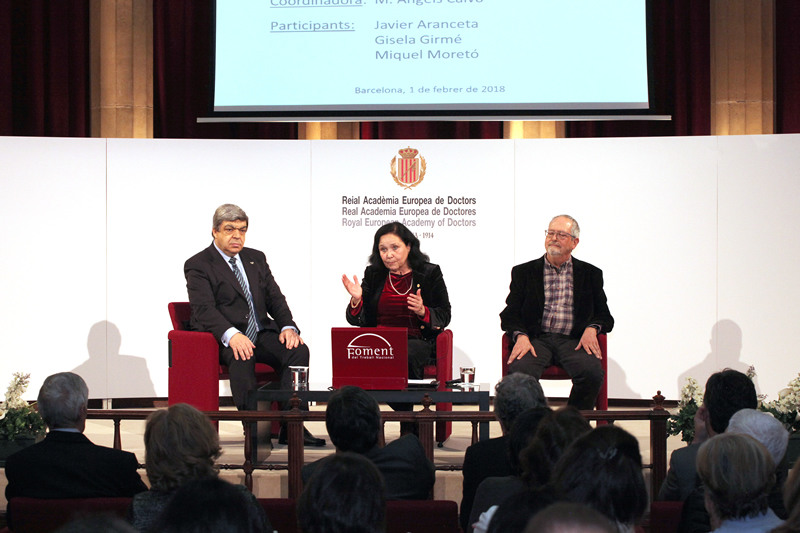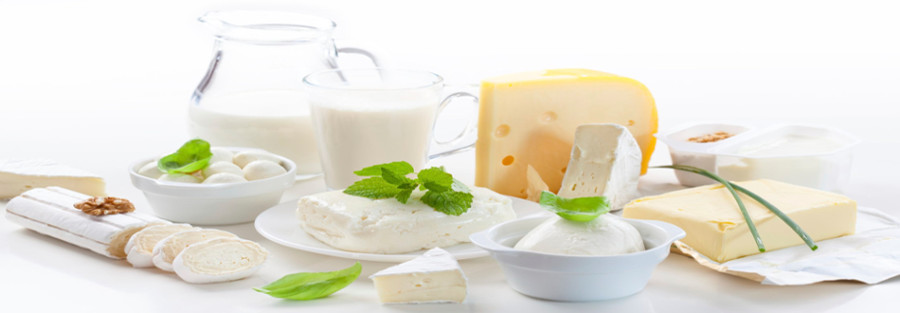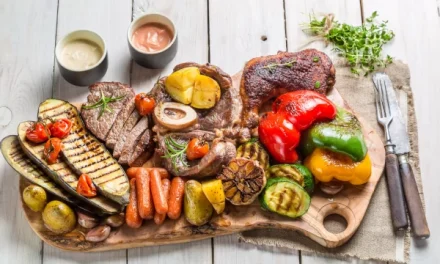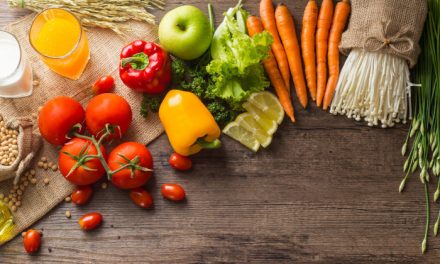In the binomial of food and health, food, in addition to nourishing, should have beneficial effects; for example, preventing diseases

Dra. Maria Àngels Calvo
The Royal European Academy of Doctors-Barcelona 1914 (RAED) organized on February 1 the round table “Nuevos alimentos, probióticos y prebióticos” (New foods, probiotics and prebiotics), which was part of the program of joint events of the Catalan academies integrated into the Interacademic Council of Catalonia and answered the generic topic proposed for this course: nutrition. The session was attended by Maria Àngels Calvo, full academician and president of the Section of Health Sciences of the RAED and professor of Animal Health at the Autonomous University of Barcelona; Javier Aranceta, full academician of the RAED and professor at the University of Navarra, and Miquel Moretó, professor of Physiology at the University of Barcelona.

Dr. Javier Aranceta
The three experts stressed that both probiotic and prebiotic foods are common in the traditional diet of different human civilizations, although the food industry now market them in new products. Probiotics are live microorganisms that, when ingested in the right quantities, can provide health benefits for the user. These bacteria or yeasts are present in food, medicine or dietary supplements. The most common probiotics are lactobacilli and bifidobacteria. The former have traditionally been used for food preservation through fermentation.
Prebiotics are compounds that the body can’t digest, but that have a physiological effect on the intestine by stimulating the development of bifidobacteria and lactobacilli. It’s a type of carbohydrates present in many foods that man is only able to partially digest, but that after fermenting in the gastrointestinal tract it feed these intestinal bacteria. It’s present in foods such as bananas, asparagus, garlic, tomatoes, leeks, wheat skins, artichokes, onions or chicory. Processed prebiotics are an appropriate supplement when it’s necessary to improve the intestinal flora.
The participants agreed that in the current binomial, food and health, food, in addition to nourishing, should have beneficial effects; for example, preventing diseases. Some of the new foods contain prebiotics and probiotics that act by modulating the microbiota. The human body has ten times more microbiota than constitutive eukaryotic cells (from their own tissues), so the microorganisms of each individual are considered part of the body. Very high concentrations of bacteria are described at the level of the skin, the oral cavity and the intestinal and urogenital tracts.



Probiotic and prebiotic foods





